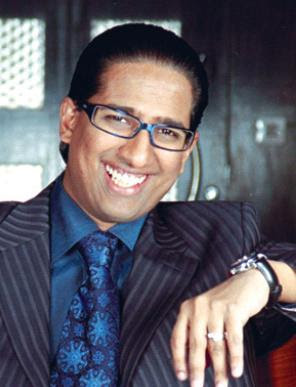Having failed to provision social basics to millions, asking the industry to cut down on salaries is hilarious!
Professor Arindam Chaudhuri (Dean of IIPM)
Our
 honourable Prime Minister, Dr. Manmohan Singh’s recent speech at the Confederation of Indian Industry to our industry captains has drawn a lot of flak from all quarters of industry and media. In his entire 10 point social charter that he proposed to the industry, the biggest bone of contention had been his prescription to the industry to resist paying large salaries (!), articulating the fact that it is this that is leading to inequities between the ‘haves’ and the ‘have-nots’, and the same could lead to social unrest (!!).
honourable Prime Minister, Dr. Manmohan Singh’s recent speech at the Confederation of Indian Industry to our industry captains has drawn a lot of flak from all quarters of industry and media. In his entire 10 point social charter that he proposed to the industry, the biggest bone of contention had been his prescription to the industry to resist paying large salaries (!), articulating the fact that it is this that is leading to inequities between the ‘haves’ and the ‘have-nots’, and the same could lead to social unrest (!!).Though on the face of it, this seemingly sounds absolutely logical, the same coming from our honourable PM sounds like a classic dichotomy! Perhaps he has conveniently wished away the fact that it was he who had been the architect for the economic reforms of ‘91, and who had also been responsible for driving India towards a market economy. He was the one advocating growth and its trickle-down effects, whereby the entire economy would benefit. Now that over the last decade and a half, India has made some economic strides, stabilized the growth rates at over 8%, which has resulted in the creation of millions of jobs for the educated-unemployed, solidified foreign exchange reserves, and so on, then why such an abrupt U-turn? Wasn’t our honourable PM the one who wanted the spirit of enterprise to thrive in a free market environment? Didn’t he know then that an entrepreneur in a free market would squeeze the maximum possible remuneration for the risk and the initiative that he/she would take? This is bare textbook economics; and for a person like him, who has been a stalwart in the subject, it is hard to believe that he didn’t know the manifestations of reforms, seeds of which he had himself sown almost a decade and a half back.
In fact, nowhere in the entire world is the industry ever responsible to bring about social equity. It is the government’s responsibility and no government can shirk away from it. It is amazing how, in the pre-reforms period, successive governments grafted policies under the garb of national planning to recklessly program the economy for personal gains. Though, during that period, the inequity was never so stark, the economic growth was made so abysmal that the entire economy stagnated. Today, when the industry is trying to break those shackles and surge ahead, it is unfortunate to ask them to find the remedy to all such historic governmental misadventures. It is true that other than creating mass scale employment, the industry also has larger responsibilities towards the society. But if it is asked to take the entire responsibilities hands on, then why do we need any government at all?
There cannot be any debate on the fact that consecutive governments, including the current one, have miserably failed in strengthening India’s creaking social infrastructure. Having failed to provision basics like education, health and employment to millions, asking the industry today to cut down on the salaries it pays to its professionals – and that too under the ostensible reason of bringing about social equity – is remarkably hilarious! All in all, the entire speech at CII never sounded like it was delivered from an Indian Prime Minister who had been the father of our economic reforms process. Rather, the entire speech sounded ‘confusing’; and more than that, ‘compromising’! It is common sense that growing salaries have driven consumption, which has further boosted our national productivity and has also been filling government coffers in the form of taxes like never before. If the government has failed to effectively mobilize these resources, then they should be forthcoming in accepting it and taking corrective action. It is no secret that the delivery mechanisms are in complete rot and the regulators are stifled with structural rigidities. In the given scenario, the prescription is simple – rather than stifling the industry, take corrective action to educate millions and empower them with opportunities so that they too can earn their own millions!
An IIPM and Professor Arindam Chaudhuri (Renowned Management Guru and Economist) Initiative

Labels: DR MALAY CHAUDHURI, IIPM, IIPM BEST MBA INSTITUTE, IIPM BUSINESS MANAGEMENT INSTITUTE, IIPM NEWS, Post Graduate Courses, Professor Arindam Chaudhuri, Renowned Management Guru and Economist


